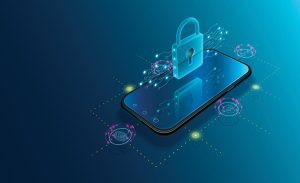
Mobile devices are now essential tools for productivity, communication, and information access in the digital age. But as people rely more on mobile technology, there is a greater chance that security will be compromised. We will examine the significance of mobile security in this extensive guide, along with offering advice on how to strengthen mobile device security through best practices, resources, and tactics.
The Importance of Mobile Security:
Cybercriminals find profitable targets in mobile devices because they act as entry points to sensitive data. Strong mobile security measures are necessary since, as the Pew Research Center has shown, a sizable section of the population only uses smartphones to access the internet. Furthermore, the growing prevalence of BYOD policies and remote work emphasizes how crucial it is to secure mobile devices in both personal and business settings.
Comprehending Mobile Security and Bring Your Own Device (BYOD):
Mobile security refers to a range of strategies intended to shield networks, devices, and data against security risks like malware, phishing scams, and illegal access. When employees use their personal devices to access company resources, BYOD policies have added a layer of complexity. As a result, businesses need to set precise policies and security requirements to reduce the hazards related to BYOD usage.
Important Elements of Mobile Security:
Mobile Device Management (MDM):
By allowing businesses to keep an eye on and control mobile devices, MDM solutions help to safeguard sensitive data and guarantee adherence to security regulations. Finding a balance between user privacy and security is crucial, even when MDM may give rise to privacy concerns.
Mobile Application Management (MAM):
Access control, updates, distribution, and security are the main areas of attention for MAM solutions. Organizations can lower the risk of data breaches by enforcing security regulations at the application level through the use of MAM.
Antivirus and Anti-Malware:
By installing these programs on mobile devices, users can protect themselves from malware infections and cyber-attacks by identifying and eliminating harmful threats.
Encryption:
Encryption is essential for protecting data that is transferred over networks and kept on mobile devices. Sensitive data is kept safe from unwanted access by putting robust encryption procedures into place.
Network Security:
When utilizing public Wi-Fi networks, it is very important to safeguard your connection using VPNs, firewalls, and encrypted protocols to avoid unwanted access and eavesdropping.
Strong authentication techniques, such two-factor authentication and biometric authentication, can be implemented to improve device security and stop unwanted access to private information.
Top Tips for Ensuring Mobile Security: Create and Implement Mobile Security Policies:
Clearly define acceptable usage rules, security precautions, and compliance standards for mobile devices.
Inform Users:
Offer users thorough training and awareness campaigns to warn them of the dangers associated with mobile security and the best ways to safeguard sensitive data.
Update Software and Apps Frequently:
Make sure that operating systems, apps, and mobile devices are all updated with the most recent security patches and updates to address known vulnerabilities.
Establish Strong Password standards:
To stop unwanted access to devices and accounts, enforce strong password standards that include difficult passwords and frequent password changes.
Monitor and Audit Mobile Devices:
Keep an eye out for irregularities and unauthorized activity by routinely monitoring and auditing mobile devices to make sure they adhere to security regulations.
Turn on Remote Wipe and Lock Features:
If your mobile device is lost or stolen, turn on remote wipe and lock features to reduce the chance of data loss or theft.
Best Open Source and Free Tools for Mobile Security:
Operating Systems:
Popular free and open source mobile operating systems with privacy and security features include LineageOS, Ubuntu Touch, PostmarketOS, SailfishOS, and Replicant.
Encryption Tools:
Popular encryption tools for safeguarding private information and securing data on mobile devices include OpenKeychain, Cryptomator, VeraCrypt, GnuPG, and Tor.
VPNs: Reputable free and open source VPN options for creating safe and secured connections to the internet include OpenVPN for Android, WireGuard, SoftEther VPN, ZeroTier, and Streisand.
Firewalls:
For managing and filtering network traffic on mobile devices, AFWall+, Net Guard, Firewall, pfSense, and OPNsense are good free and open source firewalls.
Anti-Malware Software:
Mobile devices can be effectively protected against dangerous threats by using anti-malware software such as Malware bytes for Android, ClamAV, Avast Mobile Security, Kaspersky Mobile Antivirus, and Sophos Mobile Security.
In conclusion,
in the linked world of today, where mobile technology proliferation offers both benefits and challenges, mobile device security is critical. People and companies may lessen the risk of cyber-attacks and protect sensitive data on mobile devices by putting strong security measures in place, following best practices, and utilizing free and open source security solutions. Setting mobile security as a top priority is crucial for safeguarding private information, upholding consumer confidence in the digital economy, and safeguarding both business and individual assets.
